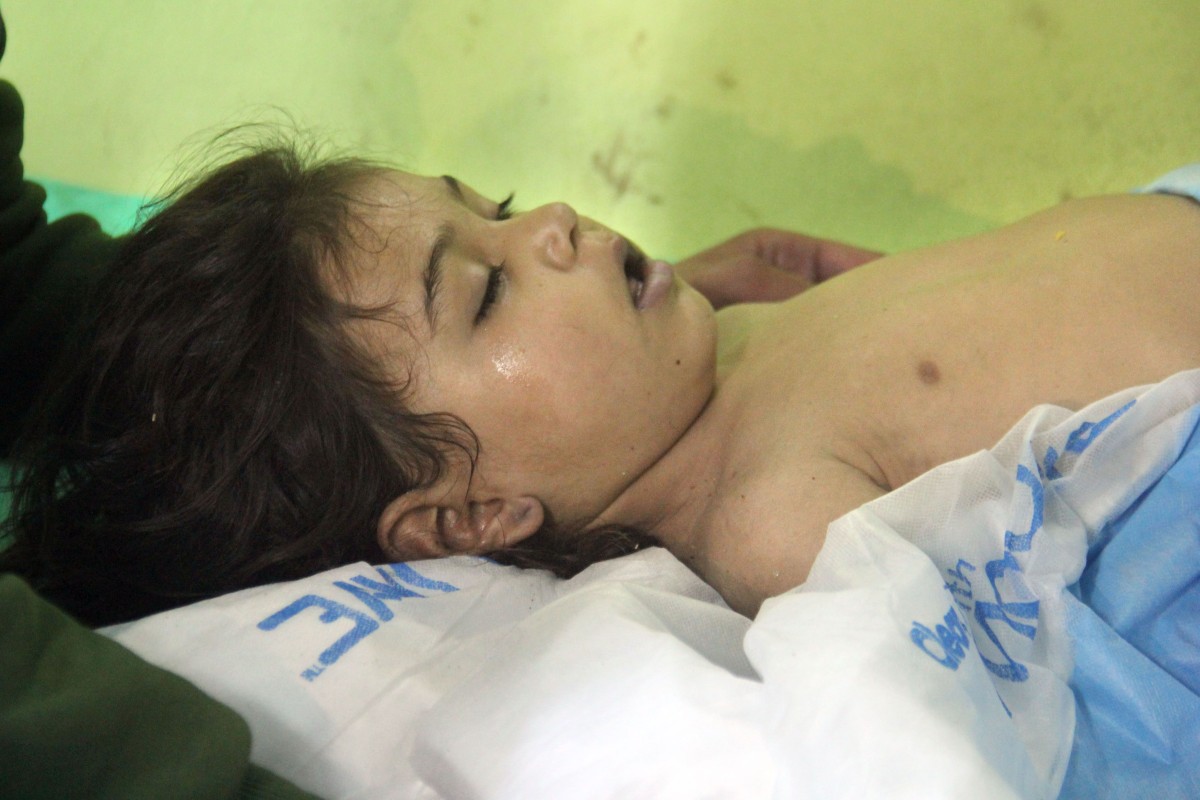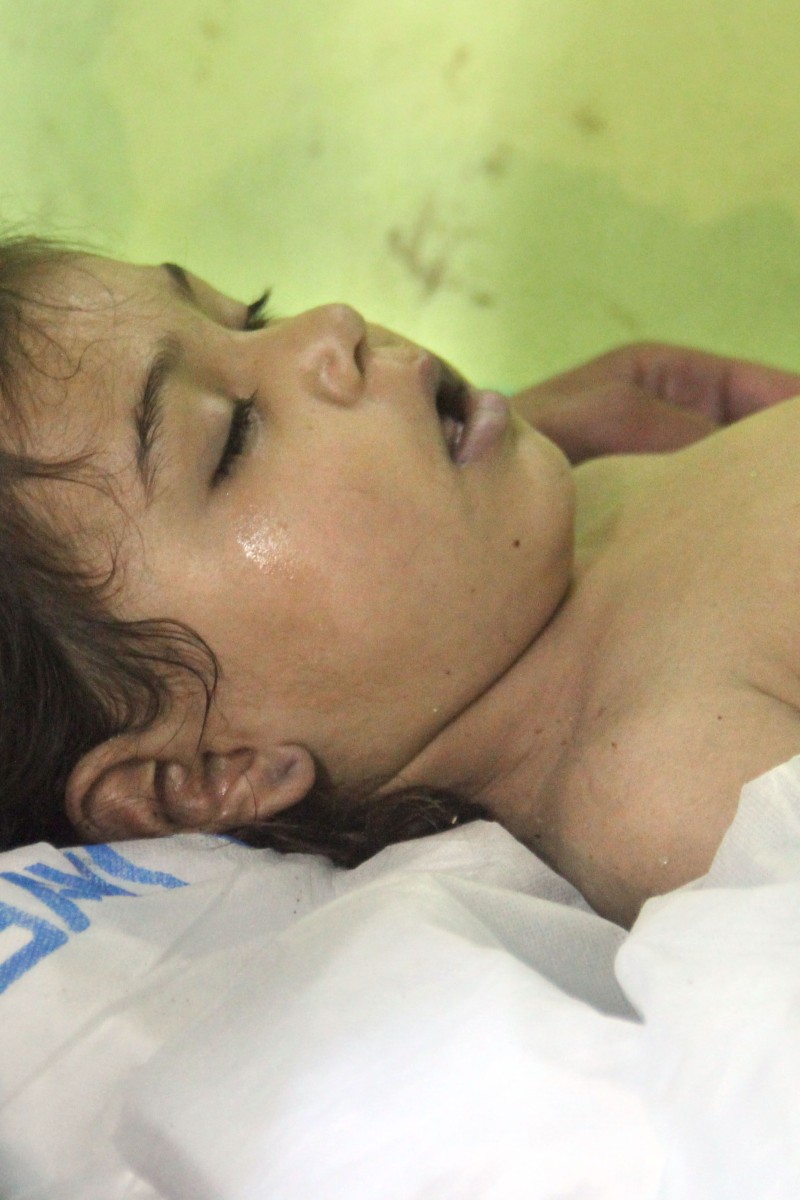 An unconscious Syrian child receives treatment at a hospital in Khan Sheikhun, a rebel-held town in the northwestern Syrian Idlib province, following a suspected toxic gas attack on April 4, 2017.
An unconscious Syrian child receives treatment at a hospital in Khan Sheikhun, a rebel-held town in the northwestern Syrian Idlib province, following a suspected toxic gas attack on April 4, 2017.International outrage is mounting over a suspected chemical attack that killed more than 80 people in a rebel-held town in northwest Syria on Tuesday morning.
Two questions remain unanswered: Was it a chemical attack? And who did it?
Young Post would also like to ask why! But we can only do that once we know who.
Was it a chemical attack?
It remains unclear what kind of chemical was used in the attack, but the World Health Organisation said on Wednesday that some victims appeared to show signs of exposure to “nerve agents”. If confirmed, it would be one of the worst chemical attacks since Syria’s civil war began six years ago.
Doctors on the ground have said that the poison used was Sarin. That is the same gas used in an attack in 2013 when hundreds of peole died in a Damascus suburb.
Who did it?
Honestly, we don’t know. Despite the shrill calls from Western media for action against Bashar al-Assad, there is no conclusive evidence that it was the Syrian government yet.
Syria’s opposition has accused Assad’s government of carrying out the strike, and warned that it “calls into question” efforts to bring an end to the conflict.
Rebel groups including al-Qaeda’s former affiliate said on Tuesday they would take “revenge” against the regime and its backers, calling on allied fighters “to ignite the fronts” across the country. But Syria’s army
“categorically” denied the claims, saying it has never used chemical weapons “any time, anywhere, and will not do so in the future”.
Russia has said the poison was from the rebel army’s stash, hit by Syrian war planes. But the US said the attack crossed a lot of lines. A senior White House official, speaking on condition of anonymity, said the Russian explanation was not credible. “We don’t believe it,” the official said.
Why would anyone do this?
President Assad has taken an enormous gamble if his forces were behind the attack: committing an overt war crime just as the Trump administration and most Western leaders had made clear they weren’t determined to get rid of him right now. Although Assad can count on the backing of his top allies, Russia and Iran, the attack set the rest of the world on fire.
So why do it? Especially when Syrian government troops have the upper hand in the six-year-old civil war? There is a military rationale, as well as a political one, analysts say. Militarily he might have wanted to capitalise on his position of strength and crush the rebels who were getting close to an important town. Politically he could have been spurred on by Trump’s seemingly friendly relations with Russia. But what it has done is to really tear them apart. Would he make such a bad mistake?
What does the US say?
The US ambassador to the United Nations, Nikki Haley, issued what appears to be a threat of unilateral action if Security Council members could not agree.
“When the United Nations consistently fails in its duty to act collectively, there are times [when] we are compelled to take our own action,” she told the council, without elaborating.
Trump described the attack as “horrible” and “unspeakable”. Asked whether he was formulating a new policy towards Syria, he told reporters: “You’ll see.”
What now?
The United States, Britain and France have proposed a draft UN Security Council resolution that would condemn the attack.
The Russian Foreign Ministry called the resolution “unacceptable” and said it was based on “fake information”.
Kremlin spokesman Dmitry Peskov said Moscow would press its case blaming the rebels for the poisoning, signalling a likely veto.
